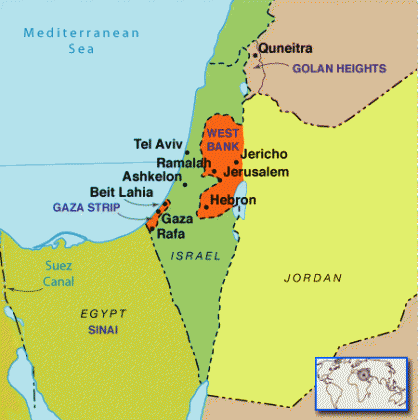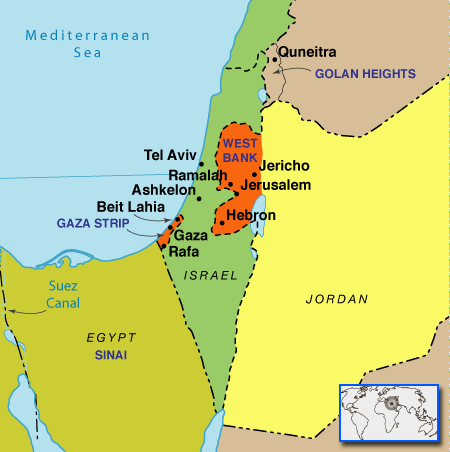

“To the East from Kosovo”: Yerevan and Baku take the same stand on Palestinian issue
By Aris Ghazinyan
UN General Assembly will be voting in September on the recognition of Palestinian Autonomy as an independent state within its borders drawn in 1967, including the Western bank of Jordan river, a sector of Gaza and Eastern Jerusalem turning it into a split capital.
In May, US President Barack Obama stated that one of the main principles of resumption of negotiations between Israel and Palestine is the creation of a Palestine state and recovery of its borders of 1967. Obama's speech was perceived as an appeal for taking concrete steps.
Both Armenia and Azerbaijan have registered a shift in Washington's foreign political course. In November of 2007, when foreign ministers of both countries were handed the so-called Madrid principles on the Karabakh issue settlement, US Department of State representative made an unequivocal statement that there will be no new states in the nearest future ?to the east from Kosovo?.
Representatives of Armenian political circles have visited Palestine and held a number of meetings with local leaders there, among them the leadership of the ruling Palestine National Liberation Movement (Fateh).
A few weeks ago Fateh?s Central Committee member Nabil Shahat paid a three-day visit to Yerevan during which he met with Armenian foreign minister Edward Nalbandyan and other high-ranking officials.
While in Armenia, Shaath stated that he has discussed the Palestinian plan on gaining UN?s support in order to proclaim Palestine?s state sovereignty in September.He specifically stressed that he had felt Yerevan's support both on official and people's level.
Within the same time period (late June) leader of the Palestinian Autonomy Mahmoud Abbas visited Azerbaijan and had a meeting with president Ilham Aliyev. Baku political analysts split in their opinions about the visit, as up until quite recently Azerbaijan had been developing close relations with Israel.
Azeri analyst Zardusht Alizadeh said that the recognition of Palestine's independence and defense of Palestinian people's rights is ?Azerbaijan's task? too. If Azerbaijan doesn?t give its support, it cannot expect the international community?s help in the Karabakh issue settlement.
The results of Abbas?s visit surfaced some three days after its completion: Azerbaijan revealed its intentions to support Palestine during the UN voting scheduled for early Autumn.
Hence, Yerevan and Baku are in accord on the ?Palestinian issue?. But if the Armenian position is dictated by the realization of the ?precedent importance? of formation of a new state ?to the east from Kosovo? (i.e. transformation of the ?Kosovo? precedent into ?Palestinian?), in case with Azerbaijan, Ankara?s influence is quite obvious ? Turkey is successfully positioning itself as the main advocate of the interests of the Islamic world and as the main mediator between the West and Muslim East.
* Aris Ghazinyan is ArmeniaNow reporter
Source: Armenia Now, Yerevan, 06 July 2011 (abridged)
http://armenianow.com/commentary/analysis/30857/palestina_autonomy_karabakh_independence
